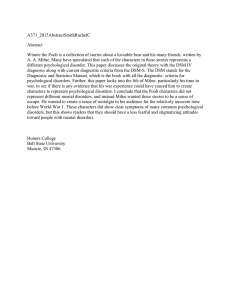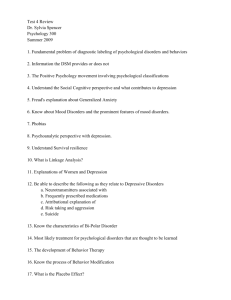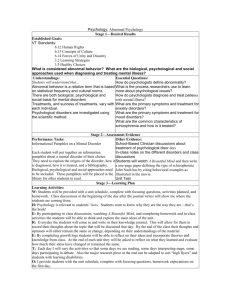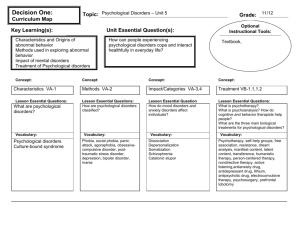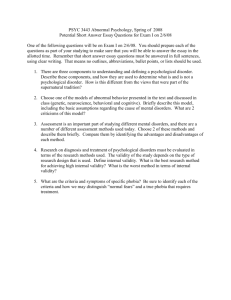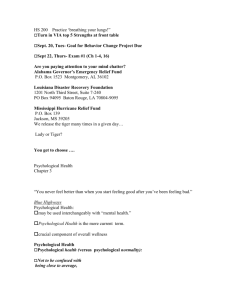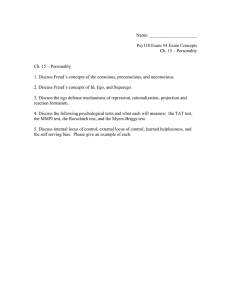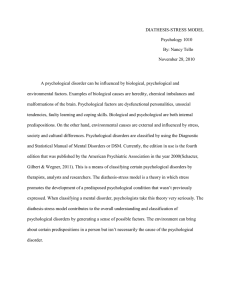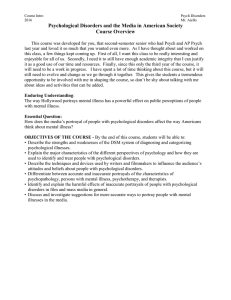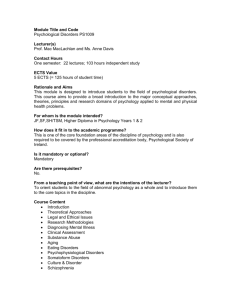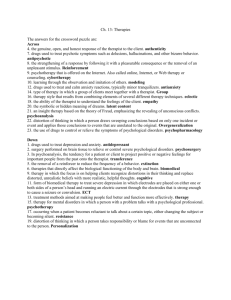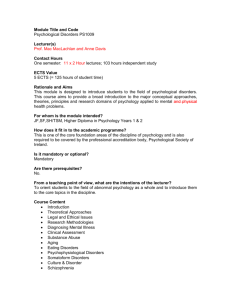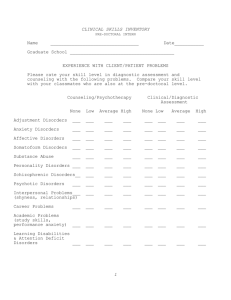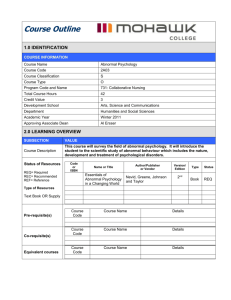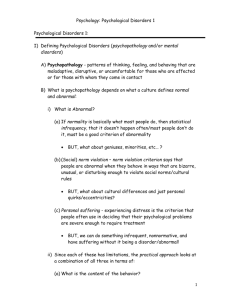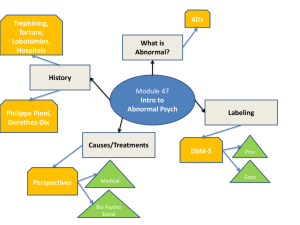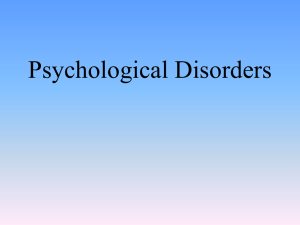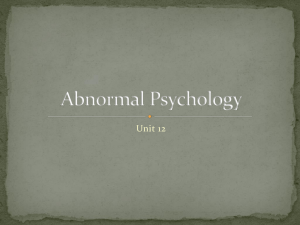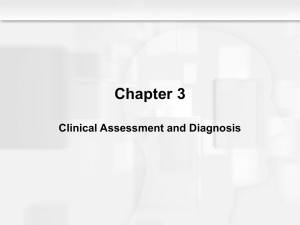Chapter 9 Summary
advertisement
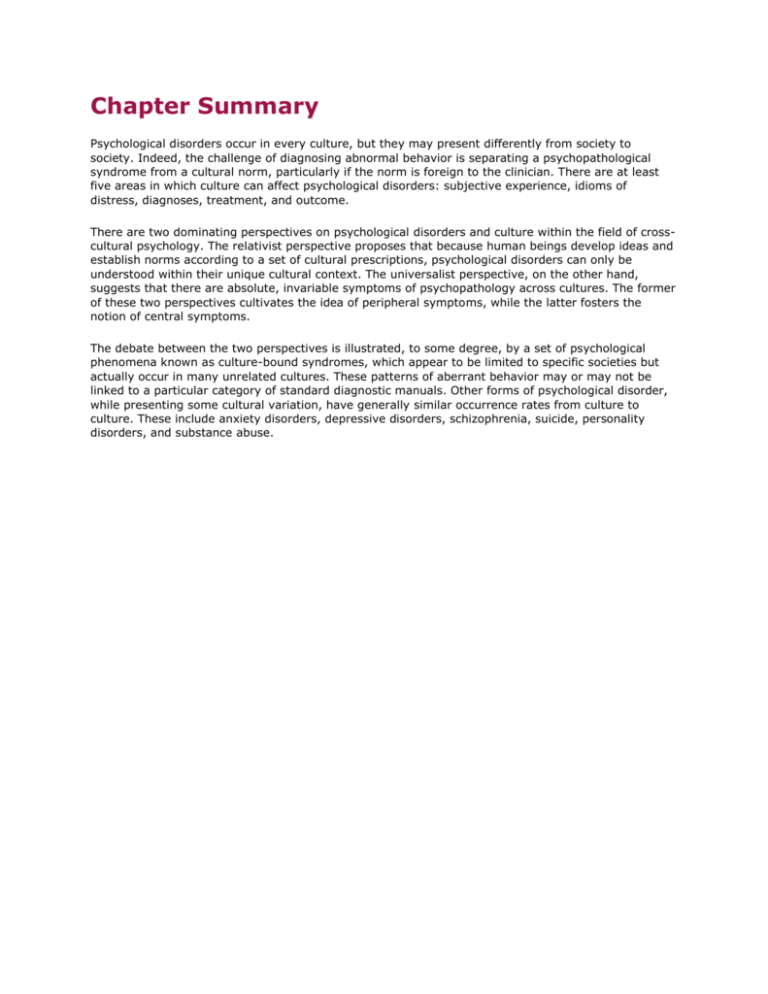
Chapter Summary Psychological disorders occur in every culture, but they may present differently from society to society. Indeed, the challenge of diagnosing abnormal behavior is separating a psychopathological syndrome from a cultural norm, particularly if the norm is foreign to the clinician. There are at least five areas in which culture can affect psychological disorders: subjective experience, idioms of distress, diagnoses, treatment, and outcome. There are two dominating perspectives on psychological disorders and culture within the field of crosscultural psychology. The relativist perspective proposes that because human beings develop ideas and establish norms according to a set of cultural prescriptions, psychological disorders can only be understood within their unique cultural context. The universalist perspective, on the other hand, suggests that there are absolute, invariable symptoms of psychopathology across cultures. The former of these two perspectives cultivates the idea of peripheral symptoms, while the latter fosters the notion of central symptoms. The debate between the two perspectives is illustrated, to some degree, by a set of psychological phenomena known as culture-bound syndromes, which appear to be limited to specific societies but actually occur in many unrelated cultures. These patterns of aberrant behavior may or may not be linked to a particular category of standard diagnostic manuals. Other forms of psychological disorder, while presenting some cultural variation, have generally similar occurrence rates from culture to culture. These include anxiety disorders, depressive disorders, schizophrenia, suicide, personality disorders, and substance abuse.

